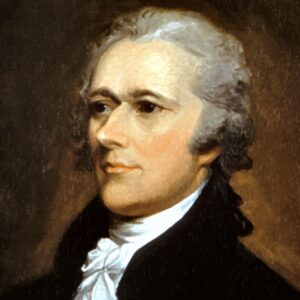Alexander Hamilton, a former Delegate, from New York, to the Constitutional Convention, using the penname “Publius,” publishes “Federalist #24,” seeking to lend assurance that ratification of the proposed Constitution for the united States will not result in the establishment of a standing (large peacetime professional) army. In paragraphs three and four he writes,
A stranger to our politics, who was to read our newspapers at the present juncture, without having previously inspected the plan reported by the convention, would be naturally led to one of two conclusions: either that it contained a positive injunction, that standing armies should be kept up in time of peace; or that it vested in the EXECUTIVE the whole power of levying troops, without subjecting his discretion, in any shape, to the control of the legislature.
If he came afterwards to peruse the plan itself, he would be surprised to discover, that neither the one nor the other was the case; that the whole power of raising armies was lodged in the LEGISLATURE, not in the EXECUTIVE. … [T]hat instead of the provision he had supposed in favor of standing armies, there was to be found, in respect to this object, an important qualification even of the legislative discretion, in that clause which forbids the appropriation of money for the support of an army for any longer period than two years a precaution which, upon a nearer view of it, will appear to be a great and real security against the keeping up of troops without evident necessity. [emphasis in the original]
[restored 11/29/2024]
Subsequent Events:
Authority:
Articles of Confederation, Article XIII
ccc-2point0.com/Articles-of-Confederation
References:
Federalist No 24 – The Avalon Project
avalon.law.yale.edu/18th_century/fed24.asp
Federalist No. 24 – Wikipedia
en.wikipedia.org/wiki/Federalist_No._24


